What is Toxic Masculinity and How Was It Highlighted in Netflix's Hit Show 'Adolescence'
In the Netflix hit show 'Adolescence', the theme of toxic masculinity is deftly explored through the experiences of its young male characters. The series sheds light on the pressures they face to conform to traditional notions of masculinity, often leading to harmful behaviors and emotional repression. As the characters navigate friendships, relationships, and societal expectations, the show highlights the detrimental effects of toxic masculinity on their mental health and interpersonal dynamics. Through poignant storytelling and relatable scenarios, "Adolescence" encourages viewers to challenge these archaic norms and promotes a more nuanced understanding of masculinity. By addressing the vulnerabilities that come with growing up in a hyper-masculine culture, the show opens up crucial conversations about identity, emotional expression, and the importance of fostering healthier, more inclusive perspectives on what it means to be a young man in today’s world.
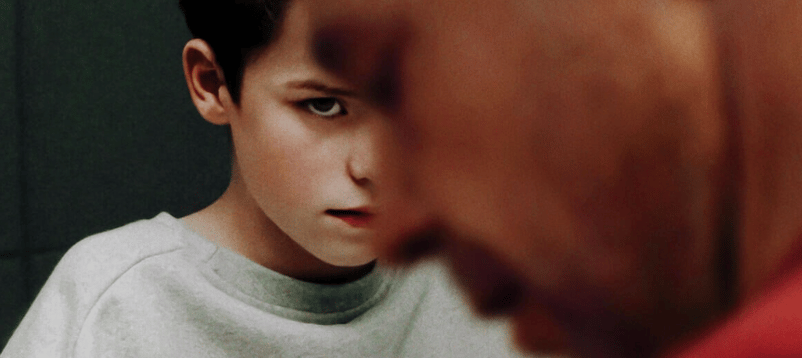

Gender & Development Expert - Tena Pick talks to THE WANDER LIST About the Hit Show 'Adolescence' and its True Representation of Toxic Masculinity and Why She 'Drastically' Changed Her Own Outlook on Parenting After Becoming a Mother.
Q: What is your background in the Gender and Development space?
Tena: I've been in this space for 15 years now. I hold an MA in Social Entrepreneurship from HULT International Business School and a MSc in Sustainable Development from SOAS, University of London, where I wrote my thesis on the topic of postcolonial feminist thought and its impact on grassroots development policies. I have worn many titles over the years, but always in the Gender and Development space. I am the Founder of Project Kal, a Gender Leadership Academy, and Co-Founder of Coro, India's first members-only family focused club. After I had my son four years ago I also co-founded Parenthesis, a feminist parenting platform. So as you can see, a lot of my interest revolves around gender mainstreaming, social impact, feminist theory and raising equitable families. I do a lot of research in the area of masculinities and work a lot with young men and boys on reimagining what it means to be a man in 21st century. I work in a whole bunch of schools in and around Bangalore on those issues, as well as issues of gender bias and stereotypes.
Q: What pushed you to go into the Gender and Equality space?
Tena: I am allergic to injustice. I had my feminist awakening relatively early in my life and have always used the feminist lens to examine and reexamine the structures around us that govern our lives. It wasn't until I was finishing my first Masters degree that I realised you could make a career in this space! I have been working in this space for the past 15 years in one way or the other, by being a practitioner and researcher both, and then after I had my son I approached it from the lived experience lens as well.
Q: Tell me about the processes/experiences that you have been through to qualify and understand this space better?
Tena: I have a vast experience working and volunteering on these topics, globally and locally. I have worked with female entrepreneurs in the Middle East, volunteered in Malawi, did workshops in Haiti, built projects in Indonesia, worked with schools in India... I find the issues that govern how we live our lives to be endlessly fascinating- and challenging!
Q: Has your outlook changed since becoming a Mother?
Tena: Drastically! It is impossible to be a "good" gender practitioner if you do not approach the issues of equity and equality through an intersectional lens, and that brings a lot of different angles to my parenting: how do I as a white woman raise a brown son and help him navigate this world? How do I bring up a privileged child in a wildly unequal society like India? How do I raise a boy who lives and breathes consent in a world that is telling him the world is his for the taking? How do I teach him emotional intelligence when he is told "boys don't cry"? The responsibility of raising a decent human being is immense, and raising a good male feminist sometimes feels impossible when you look around and see what's out there.
Q: The Netflix hit 'Adolescence' highlights Social Media as the catalyst of young men's aggression towards women. What are your thoughts on this?
Tena: I have DEVOURED Adolescence because it is such an amazing insight into the lives of teenagers, but I was very far from shocked or surprised. I have started seeing the influence of Manosphere on boys in schools in the past couple of years, and it really picked up after COVID when kids were spending so much time online. If parents heard or saw 20% of what their kids see online on a regular basis, they would have a heart attack. I've even had some parents shockingly tell me they don't mind their sons listening to Andrew Tate because he makes them go to the gym and be active.
The Manosphere is not a monolith. It has many different avenues, from 'pickup artists' to Men Going Their Own Way (MGTOW), to 'Incels' to the Andrew Tates of the world who go a step further in 'real life' into sex trafficking. All of them have one thing in common- they see men (white men especially) as going up against an unfair system that benefits only the 20% of the 'hottest, richest' men. They believe the world is 'gynocentric' and women have all the legal and economical benefits. How that manifests in their praxis differs: MGTOW ignore women and centre their lives around fitness and work, Incels blame their jaw or wrist size or race on why they can't attract women, 'pickup artists' and 'passport bros' go for what they perceive to be 'easier' targets etc - If this all sounds like a lot, it's because it is!
Q: Why are young men so easily influenced by this?
Tena: Why Andrew Tate's breed of 'Manosphere gurus' are so successful is because they sell a lifestyle before they sell the misogyny. It's the cars, the watches, the private planes. The boys don't start off by hating women, they start off by wanting the Bugatti. It's the classical way of radicalising young people, done by everyone from ISIS onwards, supported by the algorithm that pushes more and more of that nonsense onto kids, under the noses of their parents.
Q: So where is all this 'male angst' coming from?
Tena: Kids are not blind, they see the world is an unfair place, they see the lifestyle they want is becoming harder and harder to obtain, and they feel their parents have no clue what they're doing (as kids have felt since the beginning of time). The Manosphere simply produces a very convenient enemy - it's the women's fault you are not getting what you believe to be your right.
Q: What is the root of 'Toxic Masculinity' and why is it so prevalent in our society?
Tena: It's important to note that there are multiple masculinities and how they show up in the world (or rather, how they performed because most of gender is performance) depends on intersectionality. Queer masculinities for instance are very different in how they present themselves. The problem is not masculinity or being a man, the issue is prioritising and praising traits like aggression, violence and emotional suppression and seeing them as 'unmanly'. I don't think I need to tell you that we can see the roots of that everywhere around us, from music to movies to how we speak to our sons and daughters in our homes.
Q: Are we in danger of stigmatising all young men?
Tena: This is a question that comes up in every one of my workshops, but here's the truth: it's not all boys and men, but it's always boys in men. These types of shows, books and conversations have to happen to raise a new generation of allies who are willing to have uncomfortable conversations and become aware of how they always benefit from systems of oppressions, even if they don't participate in them.
Q: How does India compare with the west in terms of the Manosphere and Toxic Masculinity?
Tena: India's patriarchal and class systems are super complex, so a lot of masculinity issues stem from it. Indian laws also fall behind on acknowledging men as victims of violence, which is something the Indian Manosphere really latches onto. If you go on any Reddit thread, you will see there is a deeply rooted belief among young Indian men online that they are the most oppressed men on Earth. Make of that what you will...
Q: What about young women and girls? How do we keep them safe and educated on this topic?
Tena: I hold a strong belief that we have to remove the onus from girls of 'keeping themselves safe'. There is already a lot of messaging out there for girls and women on how to protect themselves, while at the same time they are constantly being told that they are responsible for the actions of the boys because of the age old attitude that: 'boys will be boys'. I understand the fear, but this is not the cross girls should have to bear. Girls in classrooms are more than aware of the content the boys are watching and their attitudes that stem from that. Global research points to the fact that girls are getting more politically and socially liberal while boys are getting more and more conservative - less accepting of social differences and LGBTQIA+ individuals and more opposed to migration for instance. As a parent and educator, I am more interested in closing that gap rather than adding an extra layer of responsibility to girls and young women.
Q: What needs to change in the world?
There is a quote I really like: "to the privileged, equality will always seem like oppression". Until that changes, we will keep having very surface-level conversations around monitoring kids online etc. We need a radical rehaul of this late capitalist system we live in. There is an underlying rot in the values that we all promote and strive for and our kids see it and emulate it. Smaller communities of care, relying on each other, understanding it's not "boys against girls" but everyone against the system - Those are some ground up changes I think we need to make.
Q: What is your advice to parents who may be concerned about their own child's behaviour?
First, be concerned. Do not wait for it to escalate. Have an open and honest conversation. Your kids think you don't get anything about the world because they are... kids, but in this case they're right. Have them show you the content they like without judgement. Ask them what resonates. Maybe it's Jordan Peterson talking about making your bed? Great, then you know where to start from and help them find other influencers who embody the same values without the misogyny. Keep an open mind, and communication channels open. We've seen in Adolescence how the parents thought their son was safe because he was in his room and we saw how that turned out.
Q: Social Media is a big part of every day life so what is the solution?
Using it as a two-way tool which we use to actually facilitate conversations and not just to download information. Make sure you keep an open mind and make sure you educate yourself- don't just say, "Oh my kid would never". Do not think this is a conversation you can have later! Most kids see online porn by the age of 9. You never have as much time as you think you do. So get talking and have lots of open, non judgemental conversations with your children about what they are consuming.
Q: How can parents get more involved in their child's life without taking away the experiences of growing up?
Healthy boundaries and communication, exposing your child to the world in an age-appropriate way and being willing to educate yourself! We don't have all the answers, the world is changing rapidly, and we have to be willing to go on this trip of self-discovery along with our kids.
Glossary - Important terms every parent should know:
Masculinities - Qualities or attributes regarded as characteristics of men and boys.
Toxic Masculinity - A set of attitudes and ways of behaving stereotypically associated with or expected of men, regarded as having a negative impact on men and on society as a whole. "The destructive messages associated with toxic masculinity can lead to men feeling entitled to engage in violence against women".
Incel - A member of a community of young men who consider themselves unable to attract women sexually, typically associated with views that are hostile towards women and men who are sexually active. "self-identified incels have used the internet to find anonymous support".
Manosphere - The manosphere is a varied collection of websites, blogs and online forums promoting masculinity, misogyny, and opposition to feminism. Communities within the manosphere include men's rights activists.
Pick Up Artists - More recently calling themselves 'alpha males', Pick Up Artists are part of a male supremacist community of heterosexual men who share predatory and coercive strategies aimed at manipulating women into sex. PUAs and alpha males endorse engaging in sexual harassment, stalking and even sexual violence.
Passport Bros - Men who travel to Asia to find submissive wives because they believe Western women are spoiled (non virgin, high maintenance)
LGBTQIA+ - Abbreviation for Lesbian, Gay, Bisexual, Transgender, Queer, Intersex and Asexual. The additional '+' stands for all of the other identities not encompassed in the short acronym.
MGTOW - Men Going Their Own Way is an anti-feminist, misogynistic, mostly online community that espouses male separatism from what they see as a gynocentric society that has been corrupted by feminism. is MGTOW specifically advocate for men to avoid marriage and committed romantic relationships with women.
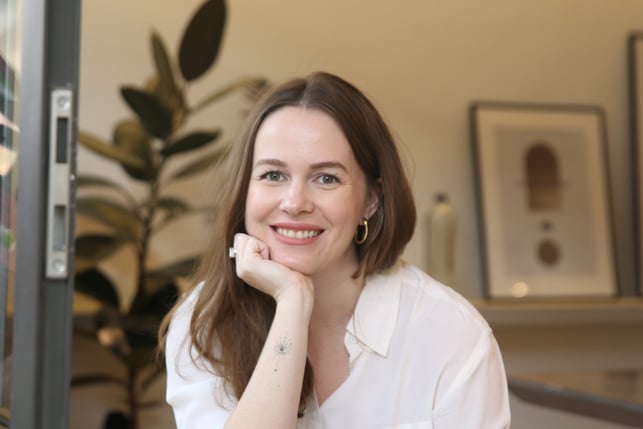

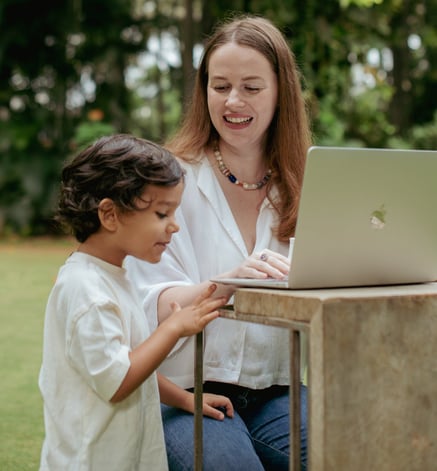


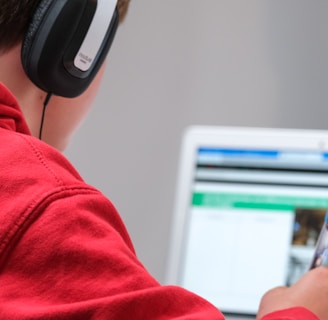
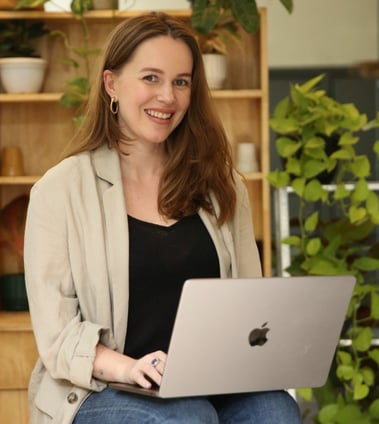

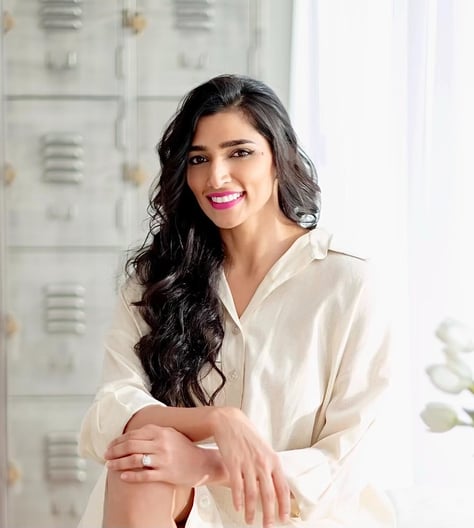

Q: What is Hello Tempayy?
Malavika: Tempeh is a traditional Indonesian food made from fermented soybeans that's becoming increasingly popular around the globe for it's high protein, nutrient-dense , gut friendly health benefits.
Hello Tempayy is our take on this amazing ingredient & we have customised many different flavours to suit the diverse palette in India. It is available all over India on Amazon, on quick commerce & in some retail stores. Our brand is also in the UAE & USA. Hello Tempayy is the only large scale Tempeh manufacturer and supplier of Tempeh in India. We pride ourselves on the quality of our products and are proud to be able to bridge the Protein gap in India by providing a few more choices.
Q: How did you get into the Vegan food industry?
Malavika: I started my career in HR for the Hotel and Casino Industry, which then led me to handling V.I.P Services. However, six years ago, a very personal health crisis of a loved one led me down the path of exploring probiotic and fermented foods. The more I learnt about it and consumed it ourselves, I found tremendous benefits and wanted to bring it to the masses, especially since there is a protein gap for vegans and vegetarians in India.
Q: You are also a Fitness Trainer and a Health and Fitness Influencer. Tell us more?
Malavika: I used to post workouts on my private Instagram page but my friends and family encouraged me to post publicly. My aunt asked me to train her and because of her massive fat loss, I started getting interest from others who wanted me to train them. So I decided to certify as a Fitness Trainer, and while I was in the process I simultaneously trained clients. Then Covid hit and and I took a pause and started posting workout videos on a public Instagram page creating a USP of exclusive home workouts. For two decades, I had only ever exercised at home so I had some fun and challenging routines to get people to move and get fit.
Q: How did you get into the space of Nutrition?
Malavika: A freak incident caused a knee injury in 2021, as I had to take a step back from training, I naturally transitioned into Nutrition, including obtaining a certificate in Soy Food & Beverage, something I was always passionate about. I haven't trained clients in a few years and so now I exclusively take on board Nutrition clients and work towards building our family business Hello Tempayy.
Q: We would love to know a delicious recipe for Hello Tempayy. Any to share?
Malavika: Absolutely. The Hello Tempayy Kebab Tikki recipe is easy to follow and they are filling, nutritious and make a great protein packed meal.
Prep Time: 10 Minutes
Cooking Time: 15 Minutes
Makes: 2 Kebab Tikkis
Q: What is your attitude towards fitness and ageing?
Malavika: We all age, it's a natural part of life but how well we age or how poorly we age is all in our hands because chronological ageing and biological ageing are two completely different things. We come with a set of genes, good or bad and we have to work on them on an ongoing basis. We can't just blame everything on genetics - we ourselves have to do the work to be fitter and healthier.
Q: What would you tell your 20 year old self about Health and Wellness?
Malavika: My 20 year old very overweight self is the one who decided to embark on a weight-loss journey and never stopped since. It's been over 2 decades. I made some mistakes along the way, tried many drastic weight loss measures, but to be old and wise you need to be young and stupid. Since then I have grown from strength to strength. I would just clap for my 20 year old self and tell her to continue with her sheer consistency, hard work and dedication.
Q: Where do you see yourself in 5 years?
Malavika: I see myself doing the same thing that I've been doing for two plus decades, taking care of myself, self-care, self love, self growth, traveling a lot more because we will be empty nesters...growing our business further and introducing more products to the Hello Tempayy line. My favourite motto has always been, "Man plans, God laughs." This is how my life has panned out so I'm living in my moment while I plan for the future and take on whatever comes my way.
To connect with Malavika, please follow her on:
Instagram: @mfitmlife
Linkedin: Malavika s v
Tempeh - A Nutritious, Vegan & Gut Friendly Source of Protein is Gaining Popularity Worldwide...
Health & Wellness
Malavika Siddarth, Co-Founder of Vegolution Talks to The Wander List about her Vegan Food Brand Hello Tempayy and Bridging the Gap in the Indian Vegetarian Diet.
Originally from Bangalore, Malavika lived abroad for 23 years, in the U.S, Australia, Oman and the UAE. The 45 year old Mother of two is back in India, living her best life and more enthusiastic about Health and Fitness than ever.


Ingredients:
Hello Tempayy Kebab Tikki
Hello Tempayy Natural Cubes 60 gms
Onion (chopped) 7 gms
Garlic (chopped) 5 gms
Green Chilli (chopped) 2 gms
Beans (chopped) 10 gms
Carrot (chopped) 10 gms
Oil 5ml
Fennel Seeds 1 gms
Chilli Powder 1 gms
Whole Jeera 2 gms
Coriander Leaves 2 gms
Boiled Potato (mashed) 25 gms
Fried Channa Powder 2 gms
Garam Masala Powder 2 gms
How To Cook:
1. Heat some oil in a pan.
2. Add Jeera, Onion, Garlic & cook till translucent.
3. Add chopped Carrot & Beans, mix well.
4. Add minced Tempayy with Jeera Powder.
5. Add mashed Potato & cook for 1-2 mins, mix well.
6. Add Salt to taste & add Coriander, mix well.
7. Shape mixture into small round Tikkis.
8. Add a little oil in another pan and pan fry on both sides until brown.
Hint: Can be eaten with a salad, or in a fresh Tortilla as a delicious wrap.
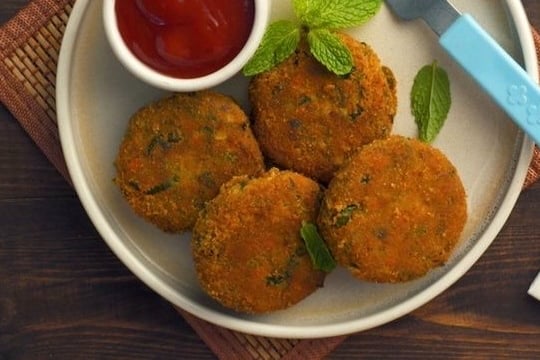

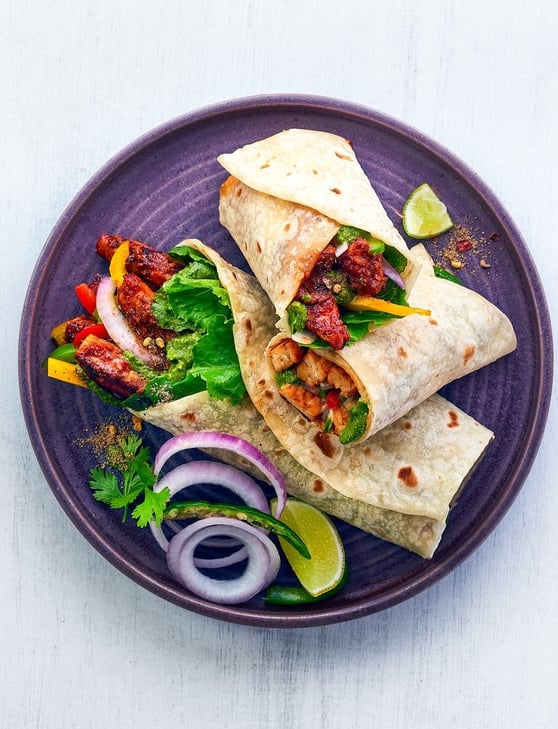



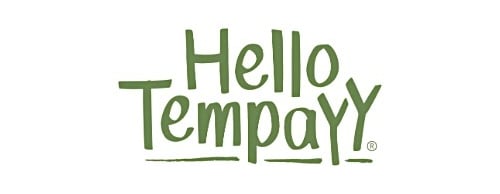



Understanding Premenstrual Syndrome (PMS) & Premenstrual Dysphoric Disorder (PMDD)
Dr Aruna Muralidhar, Bangalore based Senior Obstetrician and Gynaecologist talks to The Wander List about PMS and PMDD - the symptoms, the treatments and breaking the stigmas.
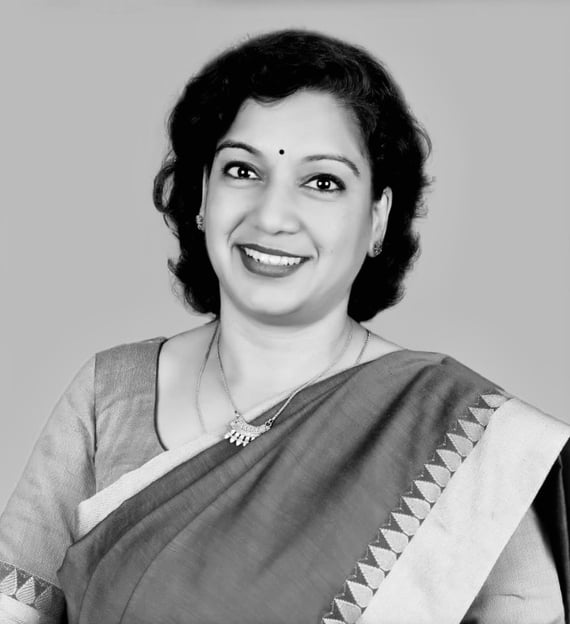

Q: What are your expertise in this subject?
Dr Aruna: I'm a practicing Senior Obstetrician and Gynaecologist in Bangalore at Cloudnine Hospital Jayanagar and Shree Clinic Jayanagar. As I have worked in the UK and India, I have had the privilege of working with women from all walks of life. Over the years, I have developed a special interest in Premenstrual Syndrome (PMS) and a more severe condition Premenstrual Dysphoric Disorder (PMDD). These conditions, though common, are often misunderstood, under-diagnosed, and sometimes dismissed as 'just mood swings.' However, for many women, PMS and PMDD are far more than that—they can be life-altering and debilitating.
Q: What Is PMS and PMDD?
Dr Aruna: PMS is a combination of physical, emotional, and behavioural symptoms that occur in the luteal phase of the menstrual cycle (the time between ovulation and the start of menstruation, usually 14 - 7 days before you bleed). Symptoms can range from bloating, breast tenderness, and fatigue to irritability, mood swings, and difficulty concentrating. For most women, these symptoms are mild and manageable. But for some, they can be severe enough to interfere with daily life.
PMDD, on the other hand, is a more severe form of PMS. It is classified as a mental health disorder and is characterised by intense emotional and physical symptoms that significantly impair a woman’s ability to function. Think of PMDD as PMS on steroids—except it’s not funny when you’re living through it.
Q: What causes PMS and PMDD?
Dr Aruna: The exact cause of PMS and PMDD is not fully understood, but we do know that hormonal fluctuations play a key role. Women with PMDD are thought to have an abnormal sensitivity to the normal changes in estrogen and progesterone levels during the menstrual cycle. This sensitivity can affect neurotransmitters like serotonin, which regulate mood.
Other factors, such as genetics, stress, and lifestyle, may also contribute. Interestingly, PMS and PMDD are more common in women with a history of depression, anxiety, or other mood disorders.
Q: How do you diagnose PMS or PMDD?
Dr Aruna: Diagnosing PMS or PMDD is like solving a hormonal mystery - track symptoms over at least two menstrual cycles, jotting down every emotional meltdown, snack craving, and unexplained urge to cry. Symptoms usually appear in the luteal phase or the first half of the cycle and vanish like magic once the period begins. While PMS might make you mildly grumpy, PMDD cranks it up to full on emotional chaos - with severe mood swings, extremely high irritability, and debilitating anxiety. We map the symptoms as per the DSM-5 (Diagnostic and Statistical Manual of Mental Disorders, Fifth Edition) criteria to confirm if it's PMS or PMDD.
Q: What are the challenges of the work around PMS and PMDD?
Dr Aruna: Even in this day and age, discussions about menstruation are still shrouded in stigma and silence, especially amongst Indian women, but women around the globe are reluctant to talk about their symptoms, let alone seek help. Many women feel ashamed or embarrassed to talk about their symptoms, which prevents them from seeking help. As a result, PMS and PMDD often go undiagnosed and untreated. This is compounded by cultural expectations that women should 'power through' their discomfort and prioritise their families over their own health. But here’s the thing: PMS and PMDD are not just 'in your head', - they are real medical conditions with real solutions. It's high time we started talking about them openly.
Q: How do you as a Doctor try to break the stigma?
Dr Aruna: As healthcare providers, it’s our job to create a safe and supportive environment where women feel comfortable sharing their experiences.Humour can also be a powerful tool. For example, I often tell my patients, “If men had PMS, there would be a national holiday every month!” While this may be a light-hearted comment, it underscores the need for greater awareness and understanding of these conditions.
Q: What are the treatment options?
Dr Aruna: The good news is that there are many ways to manage PMS and PMDD. Here’s a quick overview:
Lifestyle Changes: Regular exercise, a healthy diet, and stress management techniques like yoga and meditation can help alleviate symptoms. Reducing caffeine, alcohol, and sugar intake may also be beneficial.
Medications: COCPs - these can help regulate hormonal fluctuations and reduce symptoms.
Antidepressants: Selective serotonin re-uptake inhibitors (SSRIs) are often the first line treatment for PMDD.
Pain Relievers: Over the counter medications like Ibuprofen can help with physical symptoms.
Cognitive Behavioural Therapy (CBT): This form of therapy can help women develop coping strategies for managing their symptoms.
Surgery: A Hysterectomy and Oophorectomy may be considered for severe treatment resistant PMDD. However, this is a last resort and requires careful consideration.
Q: What does 'A Life of a Woman with PMDD' look like?
Dr Aruna: Let me share the story of one of my patients, whom I’ll call Priya (name changed for privacy). Priya is a 35-year-old software engineer who came to me after years of struggling with severe mood swings, anxiety and depression. It was only recently that she realised that the symptoms seemed to worsen in the days leading up to her period. She described feeling like a 'different person' during this time—angry, irritable, and unable to focus on her work or family.
Priya had tried everything: yoga, meditation, dietary changes, and even therapy. But nothing seemed to help. Her symptoms were so severe that she once considered quitting her job. After a thorough evaluation, we diagnosed her with PMDD and started her on combined oral contraceptive pills (COCPs) and an antidepressant. While these treatments helped initially, unfortunately her symptoms eventually returned with a vengeance.
Q: When all else fails - what is the solution?
Dr Aruna: For women like Priya, who have severe PMDD and are resistant to conventional treatments, more radical options may be necessary. In Priya’s case, we ultimately decided to perform a total abdominal hysterectomy and bilateral oophorectomy (removal of the uterus and ovaries). This is considered a last resort, as it induces surgical menopause and requires lifelong hormone replacement therapy (HRT). For Priya, it was life-changing. In her own words she told me, “I finally feel like myself again.”
While this may sound extreme, it’s important to remember that PMDD can be debilitating. For some women, the benefits of surgery far outweigh the risks.
Q: What are some Practical Tips for Women living with PMS and PMDD Symptoms?
Dr Aruna: If you’re struggling with PMS or PMDD, here are some practical tips:
Keep a symptom diary to track your mood, energy levels, and physical symptoms throughout your cycle. This can help you identify patterns and triggers.
Don’t hesitate to seek help. PMS and PMDD are medical conditions, not character flaws.
Be kind to yourself. It’s okay to take a break and prioritise your well-being.
Q: What message would you like to give to women?
Dr Aruna: PMS and PMDD are not just 'women’s issues'. When a woman is suffering, then to some degree everyone involved in her life is affected by it and therefore everyone should be pillars of support for her. They are health issues that deserve attention, understanding, and action. By breaking the silence and sharing stories like Priya’s, we can empower women to take control of their health and live their best lives—every day of the month. If that means throwing in a little humour along the way, so be it. After all, laughter is the best medicine (except when it’s PMS—then it’s chocolate).
To connect with Dr Aruna Muralidhar MD, MRCOG, FRCOG (UK), FICOG, FICM please follow her on:
Instagram: @aruna.muralidhar
Email: arunamuralidhar@gmail.com
Website: www.drarunamuralidhar.com






Overwhelmed?
Evita Naumova, a Life Coach, Mother of Two and Seasoned Expat talks to The Wander List about feelings of 'Overwhelm' and how to overcome them.


Evita Naumova's journey into Life Coaching began with her own struggles. She explains, that as an expat mother of two without any family support, she often felt overwhelmed - juggling endless responsibilities, trying to meet everyone's needs, and holding everything together. However, over time Evita realised she wasn't alone. So many women, especially mothers, were carrying the same invisible load, feeling exhausted and stretched too thin.
Q: Why did you choose Life Coaching as a profession?
Evita: I knew I wanted to help. I wanted to create a space where women could reclaim time for themselves, find balance in the chaos, and reconnect with who they are beyond motherhood. That desire is what led me to coaching.
Q: What kind of coaching do you specialise in?
Evita: I specialise in coaching expat women who are ready to follow their inner calling and discover who they truly are—beyond the roles they’ve been conditioned to play. My focus is on helping them reclaim their energy, set healthy boundaries, and redefine success on their own terms. Through mindset shifts, emotional intelligence, and resilience-building, I guide women toward creating a life of greater ease and fulfilment, supported by clear, actionable steps.
Q: Has Motherhood had a big impact in your life?
Evita: Yes, indeed! My children are a profound part of my life and journey. Motherhood has been both my greatest joy and my biggest challenge—especially as an expat without family support. It has taught me resilience, adaptability, and the importance of prioritizing myself so I can show up as the mother I aspire to be. It has also given me a deeper understanding of my own wounds and triggers, allowing me to consciously choose the example I set for my children—both in my personal and professional life.
Q: What is overwhelm? How do you describe this feeling?
Evita: Overwhelm feels like trying to carry a backpack that keeps getting heavier with every step—filled with responsibilities, expectations, and endless to-dos. At first, you manage, but as the weight piles on, even the simplest tasks start to feel impossible. It’s not just about being busy; it’s the mental and emotional exhaustion of constantly juggling everything without a moment to set the load down and breathe.
Q: Are there any benefits to feeling overwhelm?
Evita: In small doses, overwhelm is like a flashing warning light on a dashboard—it signals that something in our life needs attention. It invites us to pause, reassess, and make changes we might otherwise overlook. Our brains are designed to process vast amounts of information, but modern life—especially for women carrying the bulk of the mental load—pushes us beyond our natural limits. When overwhelm takes over, it’s our mind’s way of saying, Stop. Rethink. Regroup. Ignoring it is like driving with that warning light on—eventually, something will break down.
Q: Is overwhelm something that develops in childhood/adulthood? Or is it something that we are born with?
We aren’t born overwhelmed, but we develop patterns that make us more vulnerable to it. Our childhood experiences, societal expectations, and life circumstances shape how we handle responsibilities. Many of us—especially women—are taught from a young age to be caregivers, to anticipate others' needs, and to always be "capable." As a result, we take on more than we should, often without realising it. Over time, this pattern becomes second nature, turning overwhelm into a constant state rather than an occasional challenge.
Q: Are some people more prone to overwhelm than others?
Evita: Absolutely. Some people naturally set boundaries and filter out stress, while others—especially caregivers, perfectionists, and highly empathetic individuals—tend to absorb too much. Our personality, upbringing, and cultural expectations all influence how we handle stress and whether we reach overwhelm more easily. For some, it's like having a built-in shield, while for others, it feels like being a sponge, soaking up every demand and emotion until there’s no space left.
Q: Can we as humans ever stop completely feeling overwhelmed?
Evita: No, and that’s okay! The goal isn’t to eliminate overwhelm forever—it’s to learn how to navigate it. Life will always bring challenges, but when we build resilience, manage our energy, and set clear boundaries, we can prevent overwhelm from taking over our lives.
Q: What key things can help people to manage feelings of overwhelm?
Evita: Here are just a few things you could start with if you feel overwhelmed:
Prioritize: Understand that not everything is urgent or equally important. Focus on what truly matters.
Let Go of "Shoulds": Release the pressure of what you think you "should" do. Embrace what genuinely resonates with you.
Set Boundaries: Saying no is a powerful skill. Protect your time and energy as an act of self-care.
Seek Support: We’re not meant to do it all alone. Whether it’s a coach, friend, or community, having support makes a significant difference.
Practice Self-Compassion: Perfection isn’t the goal. Give yourself grace and remember that you are enough.
Q: Have you ever felt overwhelmed? And how has coaching helped you to deal with it?
Evita: As an expat mom without family nearby, I've often found myself overwhelmed, shouldering 90% of the mental and practical load. Coaching has been transformative for me—it has helped shift my mindset, establish boundaries, and carve out space for myself. Through coaching, I’ve gained tools to step back, reassess, and make conscious choices rather than just reacting to life's demands. It's why I do what I do—because I know firsthand that change is possible.
To connect with Evita please follow her on Instagram @coachingwithevita




10 Tips for a better sleep according to the experts
According to research 35% of people do not feel they get enough sleep, impacting both their physical and mental health. It has been noted that 46% of individuals with frequent sleep disturbances report missing work or events, or making errors at work, compared to 15% of healthy sleepers. According to a recent study, India is the second most sleep deprived country in the world. Here are 10 sleep expert tips gathered by The Wander List....
1. Block out light
Excess light exposure can throw off your sleep and circadian rhythm. Blackout curtains over your windows or a sleep mask over your eyes can block light and prevent it from interfering with your rest. Avoiding bright light can help you transition to bedtime and contribute to your body’s production of melatonin, a hormone that promotes sleep.
2. Set Your Alarm for the Same Time Each Day
It is close to impossible for your body to get accustomed to a healthy sleep routine if you are constantly waking up at different times. Pick a wake-up time and stick with it, even on weekends or other days when you would otherwise be tempted to sleep in.
3. Minimize Noise
Keeping noise to a minimum is an important part of building a sleep-friendly bedroom. If you cannot eliminate nearby sources of noise, consider drowning them out with a fan or white noise machine. Earplugs or headphones are another option to stop sounds from bothering you when you want to sleep.It is close to impossible for your body to get accustomed to a healthy sleep routine if you are constantly waking up at different times. Pick a wake-up time and stick with it, even on weekends or other days when you would otherwise be tempted to sleep in.
4. Relax for 30 Minutes Before Bed
It is much easier to fall asleep if you are at ease. Quiet reading, low-impact stretching, listening to soothing music, and relaxation exercises are examples of ways to get into the right frame of mind for sleep. Focus on trying to relax instead of trying to fall asleep. Controlled breathing, mindfulness meditation, progressive muscle relaxation, and guided imagery are examples of relaxation methods that can help ease you into sleep.
5. Disconnect Devices at least 1 Hour Before Bed
Tablets, smartphones, and laptops can keep your brain wired, making it hard to truly wind down. The light from these electronic devices can also suppress your natural production of melatonin. As much as possible, try to disconnect for an hour or more before going to bed.
6. Exercise for at Least 20 Minutes Each Day
Daily exercise has many benefits for health, and the changes it initiates in energy use and body temperature can promote solid sleep. Most experts advise against intense exercise close to bedtime because it may hinder your body’s ability to effectively settle down before sleep.
7. Be Mindful of Alcohol in the Hour Before Bedtime
Alcohol can induce drowsiness, so some people are keen on a nightcap before bed. Unfortunately, alcohol affects the brain in ways that can lower sleep quality, making it best to avoid alcohol in the lead-up to bedtime.
8. Limit Caffeine After 2 pm
Caffeinated drinks, including coffee, tea, and sodas, are among the most popular beverages in the world. Some people are tempted to use the jolt of energy from caffeine to try to overcome daytime sleepiness, but that approach is not sustainable and can cause long-term sleep deprivation. To avoid this, keep an eye on your caffeine intake and avoid it later in the day when it can be a barrier to falling asleep.
9. Eat Dinner a Few Hours Before Bed
It can be harder to fall asleep if your body is still digesting a big dinner. To keep food-based sleep disruptions to a minimum, try to avoid late dinners and minimise especially fatty or spicy foods. If you need an evening snack, opt for something light.
10. Manage your worries
Try to resolve your worries or concerns before bedtime. Start journalling what's on your mind and write out a gratitude list. Set intentions for the next day by planning out your to-do list - this will help to ease stress and clear your mind for a good night's sleep.
Luxury 'At Home Spa' Favourites
Self care secrets to enjoy at home for a spa like experience


The Wander List recommends...
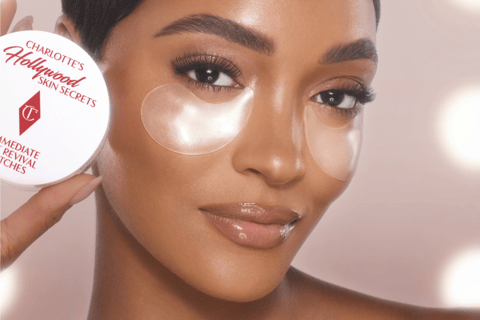

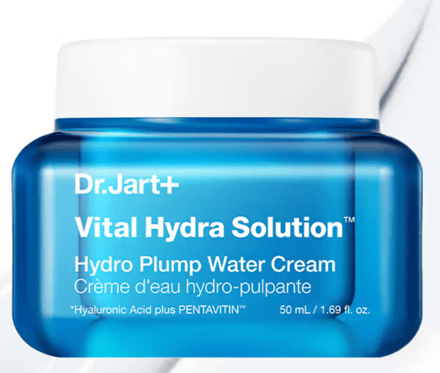

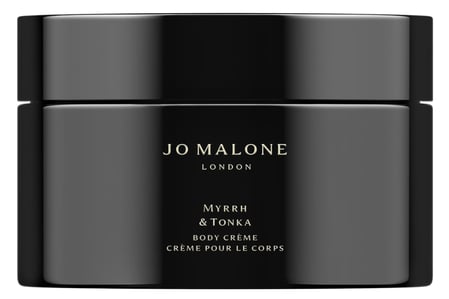

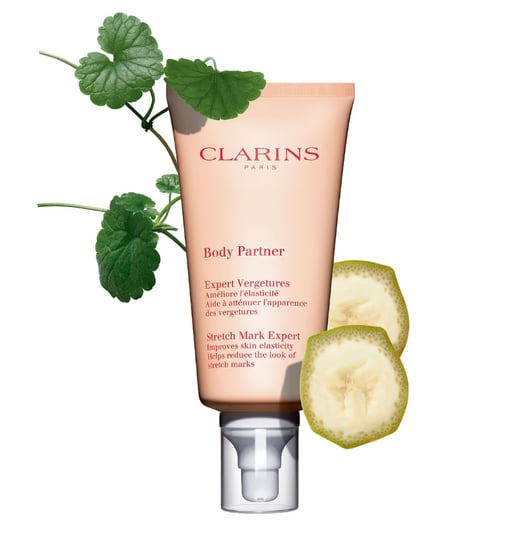

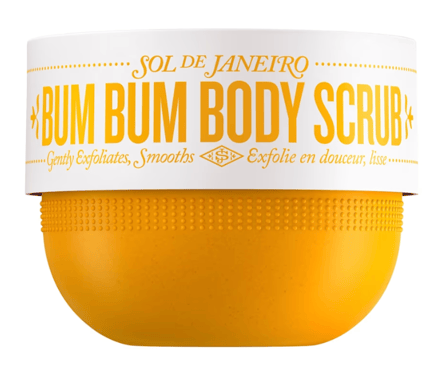



Body Moisturising Candle by KER
Run a hot bath, light the candle and sit back as it melts into a warm, nourishing body oil. Made with skin loving natural oils and butters, this candle melts into a highly nourishing and silky warm body oil.
available at www.weareker.com
Myrrh & Tonka Body Creme by Jo Malone
A smooth and sumptuous body creme enriched with Shea Butter and Jojoba Seed Oil, leaves your skin scented and thoroughly moisturised.
available at www.sephora.in
Charlotte Tilbury Immediate Revival Eye Patches
Revive dry under eyes with this absorb and lock in moisture system that delivers deep into the skin. Very fast absorbing, works in just minutes.
available at www.nykaa.com
Body Partner Stretch Mark Expert Cream by Clarins
A exclusive Crowberry extract that helps prevent stretch marks caused by pregnancy, puberty or weight fluctuations. This product aims to enhance collagen production fibres to boost skin elasticity and resistance to future stretch marks.
available at www.sephora.in
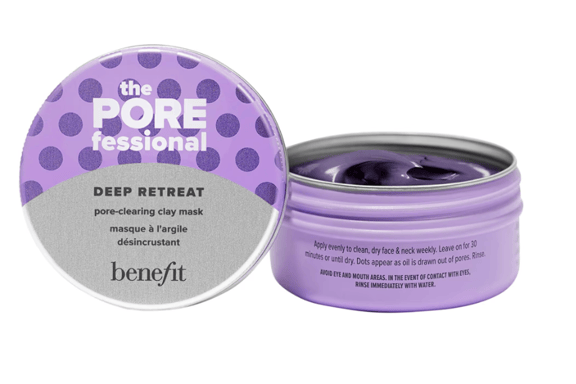

The Porefessional Deep Retreat Pore Clearing Clay Mask
This smooth, creamy clay feels gentle and comfortable as it goes to work on your pores. pores! Spot the dots that appear as the mask dries to see oil being drawn out of pores, then rinse to reveal visibly refined, unclogged pores and mattified, healthy-looking skin.
available at www.sephora.in
Dr. Jart+ Hydro Plump Water Cream
If glass skin is what you want, then this is the product for you. A hydrating water gel cream with 5% glycerin quickly quenches dehydrated skin and leaves skin looking revitalised. refreshed and plump with moisture.
available at www.sephora.in
Sol de Janeiro Bum Bum Body Scrub
Inspired by the golden beaches of Rio, this ultra-fine body scrub polishes and nourishes with a microbead-free blend for softly shimmered, Rio-radiant skin scented with the iconic Cheirosa ’62 fragrance. Infused with caffeine-rich guaraná, this spa-worthy treat leaves skin silky, never greasy.
available at www.nykaa.com
